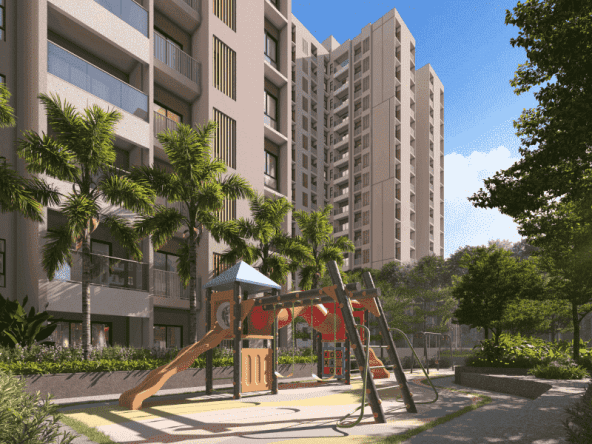In a significant ruling aimed at controlling unauthorized constructions and ensuring planned urban development, the Calcutta High Court has mandated that no building registration will be allowed without a sanctioned plan.
This landmark decision reinforces the importance of adhering to approved building plans and highlights the judicial system’s role in promoting lawful and organized urban growth.
This blog will discuss the key points of this Calcutta High Court judgment and its impact on the estate market in Kolkata. So, let’s read on!
The Context of No Building Registration Calcutta High Court Judgement
Unauthorized construction has been a persistent issue in many urban areas, including Kolkata. Such constructions not only violate building regulations but also pose significant risks to safety, infrastructure, and the overall aesthetic of the city. Unauthorized buildings often lack proper planning and compliance with safety norms, leading to potential hazards for residents and the community at large.
The Calcutta High Court’s ruling comes as a response to the growing concern over unauthorized construction and the need for stringent measures to enforce building regulations. The court’s decision aims to ensure that all buildings adhere to sanctioned plans, which are reviewed and approved by the relevant authorities to meet safety and regulatory standards.
Key Points of the Judgment
This judgment on ‘No Building Registration’ has a few significant points that need to be highlighted to understand why the Calcutta High Court passed this judgment. Here are-
1. Mandatory Sanctioned Plan for Registration
The court has clearly stated that building registrations cannot proceed without a duly sanctioned plan. This means that any construction, whether residential or commercial, must have an approved building plan from the competent authority before it can be registered. This step is crucial in ensuring that all constructions comply with legal and safety norms.
2. Role of Regulatory Authorities
The judgment places significant responsibility on municipal and local authorities to enforce this requirement. These authorities must ensure that all submitted building plans are thoroughly reviewed and sanctioned before any construction begins. They are also tasked with verifying that the completed construction aligns with the approved plan before granting registration.
3. Penalties for Non-Compliance
The ruling includes provisions for penalties in cases of non-compliance. Builders and developers who proceed with construction without a sanctioned plan or attempt to register an unauthorized building could face severe legal and financial repercussions. This deterrent aims to discourage the practice of unauthorized constructions and promote adherence to legal procedures.
4. Impact on Existing Unauthorized Constructions
For existing unauthorized constructions, the court has directed that regularization should only be considered if the building meets all safety and regulatory standards and can be brought into compliance with the sanctioned plan requirements. This move ensures that even past violations are addressed and rectified.
Implications of the Ruling
The Calcutta High Court’s decision of ‘No Building Registration’ has far-reaching implications for urban development and construction practices in Kolkata and potentially across other regions facing similar challenges. Here are some key implications:
1. Promoting Planned Development
By mandating sanctioned plans for building registration, the ruling ensures that urban development is orderly and planned. This approach helps in the efficient utilization of resources, better infrastructure planning, and enhanced safety for residents.
2. Enhanced Safety and Compliance
Sanctioned plans are reviewed for compliance with safety norms, zoning laws, and other regulatory standards. Ensuring that all constructions adhere to these plans significantly reduces the risk of structural failures, fire hazards, and other safety concerns.
3. Transparency and Accountability
The ruling promotes transparency in the construction process. Builders and developers are held accountable for adhering to approved plans, and any deviations are subject to scrutiny and penalties. This fosters a culture of compliance and responsibility within the construction industry.
4. Deterring Unauthorized Constructions
The stringent enforcement of the requirement for sanctioned plans and the associated penalties act as a strong deterrent against unauthorized constructions. Builders and developers are less likely to bypass legal procedures when faced with the prospect of severe penalties.
5. Legal Precedent
The Calcutta High Court’s ruling sets a legal precedent that can influence similar decisions in other jurisdictions. It underscores the judiciary’s role in upholding the rule of law and promoting lawful urban development practices.
Final Words
The Calcutta High Court’s mandate that no building registration be allowed without a sanctioned plan is a pivotal step toward ensuring lawful and planned urban development. This ruling addresses the critical issue of unauthorized constructions and promotes adherence to safety and regulatory standards.
By enforcing the requirement for sanctioned plans, the court has reinforced the importance of lawful construction practices, ultimately benefiting residents, developers, and the broader community. It is advisable that if you are investing money in real estate property, or looking for a 2/3 BHK flat in Kolkata, then opt for Srija Realty, one of the leading real estate developers in Kolkata. We are following all norms and regulations to develop residential & commercial property. Visit our website to learn more!



